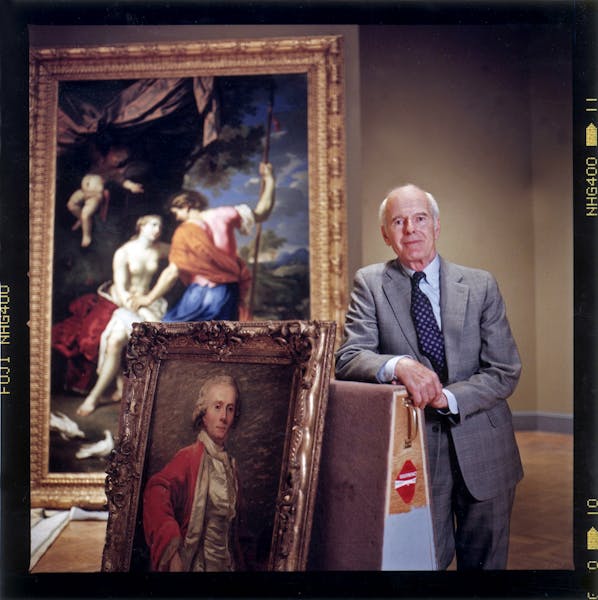George Draper Dayton, a successful Worthington, Minn., banker, made his first Minneapolis real estate investment in 1895, constructing an eight-story medical office building (demolished in 1935, now the site of City Center) at 6th and Nicollet.
A few years later, he commissioned Minneapolis architect Charles Sedgwick (his Westminster Presbyterian Church still stands at 12th and Nicollet) to design a six-story structure on the next block. When it opened in 1902, the imposing brown brick building, trimmed in fanciful terra cotta, was notable for its distinctive fifth-floor circular windows.
Dayton intended to lure office tenants to the upper floors, reserving the lower ones for merchants, including Goodfellow's, one of the city's early department stores. But within a year, Dayton went from landlord to retailer. A very successful one.
He bought out his Goodfellow's partners and expanded. By 1912, the Dayton Co. had filled all six floors at 700 Nicollet and was reaching across the block to 8th Street.
Major growth spurts, at least one a decade, followed. By 1937, the store's 8th Street side began to take on the look it has today, a restrained Moderne exterior of golden brick and buff Minnesota limestone, the work of the Minneapolis architectural firm of Larson and McLaren.
An ambitious postwar expansion, completed in 1947, finally brought the store's 8th Street side to its full 12-story height and included the Oak Grill and Skyroom restaurants, still in operation.
The store's famous eighth-floor auditorium — erected on top of the Dayton-Radisson parking ramp — came along in 1963. The first of five skyways appeared in 1970.
A 1990 renovation restored the ornate 7th Street facade to something close to its original appearance.
G.D. Dayton (he's Gov. Mark Dayton's great-grandfather) sparked one of the nation's great retail dynasties. Target, created by his grandsons in Roseville in 1962, now operates 1,799 stores with $72.6 billion in annual sales.
Despite its illustrious life span, 700 Nicollet is not listed on the National Register of Historic Places.
Dayton died in 1938 at age 80. He is buried in Lakewood Cemetery in Minneapolis.
RICK NELSON

The 5 best things our food writers ate this week

A Minnesota field guide to snow shovels: Which one's best?

Summer Camp Guide: Find your best ones here

Lowertown St. Paul losing another restaurant as Dark Horse announces closing

